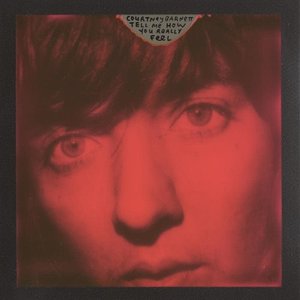Courtney Barnett - Tell Me How You Really Feel (Milk!, Marathon Artists)
Impressive new set from the Antipodean songwriter sees a turn into darker pastures
Released May 17th, 2018 via Milk! Records / By Emilie Kneifel
 “Tell me how you really feel” is both a lyric on and the title of Courtney Barnett’s newest album, both a plea for authenticity and an often-sarcastic retort to emphatic oversharing. Still, Courtney Barnett delivers a swift, be-careful-what-you-wish-for reply: “I don’t know anything/ I don’t know anything/ I don’t know anything.”
“Tell me how you really feel” is both a lyric on and the title of Courtney Barnett’s newest album, both a plea for authenticity and an often-sarcastic retort to emphatic oversharing. Still, Courtney Barnett delivers a swift, be-careful-what-you-wish-for reply: “I don’t know anything/ I don’t know anything/ I don’t know anything.” With her breakout album, Sometimes I Sit and Think and Sometimes I Just Sit, Barnett became known for her bumpy, punny insights. The first time I listened to Tell Me How You Really Feel, I felt a jolting lack. Gone is her narrative witticism, replaced instead by simple repetition and lots of ooh-ing. These aren’t story-songs to tongue along to with every twist. Gone are the gimmicks, I guess. One might argue that Courtney’s pared-down language means that she’s captured a more genuine voice, but that assertion hinges on the belief that metaphors are flowery excess. Whether or not she’s closer to herself really isn’t for us to say; in fact, this presumptuous pressure weighs on her heavily. “I guess it's hard to keep/ Everybody happy,” she figures. I miss her puns, but above anything I hope the person she’s kept happy is herself.
On City Looks Pretty, she alludes to what’s up: “The city takes pity on your injured soul and/ Heavenly prose ain’t enough to fill that hole.” Maybe her puns just aren’t cutting it anymore. Maybe our times just feel less poetic. (My hopeful heart still wonders: doesn’t the apocalypse make beautiful release all the more imperative?) Maybe Barnett is just tired.
Or maybe she’s outsmarted us all by ditching plays-on-words for plays-on-perspective. She’s constantly in conversation with you’s and I’s whose proprietors shift. Sometimes Courtney’s the I, sometimes the you; sometimes she’s talking to herself, other times she’s mimicking others talking at her. She needs “a little timeout/ from me (me, me, me)/ and you (ooh).” Maybe even the “you” she needs a break from is herself, or one of the myriad selves imposed on her by fans and friends.
She integrates others’ words as well -- Carrie Fisher’s “Take your broken heart/ Turn it into art,” Margaret Atwood’s “Men are afraid that women will laugh at them/ Women are afraid that men will kill them,” and an internet troll’s "I could eat a bowl of alphabet soup/ And spit out better words than you" -- emulating our inner dialogue’s constant contamination.
Courtney Barnett, who once wielded words like they were made for her alone, doesn’t believe her phrases hold up against this flood. On Charity she even stops to ask, “Are you listening?” and the fact that most listeners won’t register this line proves her point: that we absorb but don’t hear, or hear only what we want to. There’s this bitter-laugh sense that she’s singing to no one. “You know what I mean?/ Not really, it seems.” She watches this rift between realities -- hers and others’, how her own world has flip-flopped with fame -- and doesn’t really resist, because it’s futile. “Friends treat you like a stranger/ Strangers treat you like a best friend. Oh well.”
The album begins in a sandpit of self-loathing -- “so subservient, I make myself sick” -- but there’s a breaking point at Nameless, Faceless and I’m Not Your Mother, I’m Not Your Bitch, where the personal becomes political. This heft isn’t hers; it’s the patriarchy weighing her down, heavy as all hell. She doesn’t ask for much: “I wanna walk in the park in the dark.” But “it’s all the same. Never change/ Never change.” She spits. She screams, lashing out at what she cannot control.
So, what to do? Meditation “makes you more strung out” and medication “just makes you more upset.” Even karma’s perfect symmetry has somehow been warped: “Some kindness goes around/ Some kinda backfires.” But she reminds “you” (the listener, herself) that at least “you don’t have to pretend that you’re not scared/ Everyone’s just as terrified as you.”
In the outro of the final track, Sunday Roast, Bartnett encourages “you” to “keep on keeping on,” to “know you’re not alone.” But still she inserts a repeated “It's all the same to me,” an under-the-breath apathy that stubbornly sticks. She’s keeping her aloofness, for now. And maybe that’s the only way to survive these days: to keep some of yourself for yourself. Maybe that’s easier than admitting “I got a lot on my mind/ But I dunno how to say it,” that “your vulnerability’s stronger than it seems.” Easier to hold some of yourself above the torrent, above the flood. Better to stay on high ground rather than be washed away.





 All Content RSS Feed
All Content RSS Feed
Follow Bearded on...